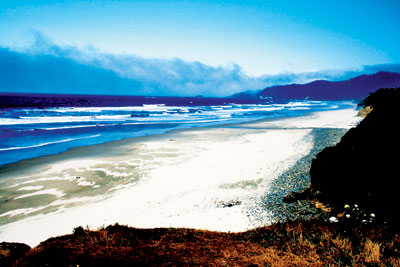All Nonfiction
- Bullying
- Books
- Academic
- Author Interviews
- Celebrity interviews
- College Articles
- College Essays
- Educator of the Year
- Heroes
- Interviews
- Memoir
- Personal Experience
- Sports
- Travel & Culture
All Opinions
- Bullying
- Current Events / Politics
- Discrimination
- Drugs / Alcohol / Smoking
- Entertainment / Celebrities
- Environment
- Love / Relationships
- Movies / Music / TV
- Pop Culture / Trends
- School / College
- Social Issues / Civics
- Spirituality / Religion
- Sports / Hobbies
All Hot Topics
- Bullying
- Community Service
- Environment
- Health
- Letters to the Editor
- Pride & Prejudice
- What Matters
- Back
Summer Guide
- Program Links
- Program Reviews
- Back
College Guide
- College Links
- College Reviews
- College Essays
- College Articles
- Back
Free the Orcas
Orcas were not meant for captivity. Stolen from their families, squeezed into tanks vastly smaller than their habitats in the wild, it is no wonder their lives are so much shorter in captivity compared to their lives in the wild. In the wild orcas are able to travel miles on end in a straight line: constantly moving in unique family groups. As parks and aquariums cannot replicate the orcas’ natural environment, orcas in captivity live lives that are unnatural to them which negatively affects their health. They are stressed and frustrated, as they cannot communicate with each other, and are not able to move in the way they are supposed to move in the wild. This frustration and stress builds up and expresses itself through the orcas attacking each other: harming themselves and their human caretakers. As we are the ones responsible for capturing these animals and taking them out of their natural habitat it should be our responsibility to return them back to their habitat. If that is not possible, then we should at least create environments as similar to their natural habitat as possible for them to live. We need to open our eyes to the current situation of the orcas and take steps to help them.
Clocking in at an average weight of six tons: the orca is no house-cat. Living in the wild, orcas can easily travel up to 100 miles a day moving in unique clans that can contain hundreds of individuals with complex social bonds and hierarchies. Distinct call repertoires characterize each clan of orcas with no overlap of vocal calls from clan to clan. Essentially, each clan speaks a language indecipherable to the others. When orcas caught in the wild are placed in captivity they are either put in tanks with orcas that were born and raised in captivity and thus have no way of communicating with each other or with other captured orcas from different clans. The chances of an orca being placed in a tank with an orca from the same clan are little to none. As a result, captive orcas cannot communicate with each other resulting in increased frustration and stress among the orcas which often leads to physical violence. In addition, in captivity orcas are forced to swim in tight circles in artificial habitats that are less than one one-millionth of the animal's’ potential daily range in the wild. If you lived in a bathtub your whole life, would you not go crazy? These groups of orcas were put together by the park or aquarium and have no relation to one another. They are forced to live in a space that is vastly smaller than their natural habitats and have no way of communicating their frustration and anger to each other. It is no wonder they express this pent up frustration and anger in physical ways, the only way they can express themselves, and often seriously hurt themselves, other orcas, or their trainers.
Just as we would go crazy living in a bathtub, with little to no communication with others, for the whole of our lives: orcas do not live satisfying lives in captivity. In fact, their lives are significantly shorter in captivity than in the wild. When we pay to see these animals at parks or aquariums we are strengthening the cages, the forced bonds, that trap them and are preventing them from being freed. We need to take a stand to free the orcas and release them back to where they belong: the wild. If they have not acquired the skills to survive in the wild than they should at least be sent to an environment more similar to their natural habitat. We must not teach the future generation that the capture of animals like orcas and their public display for money is right. As Rifkin, author of A Change of Heart About Animals, proclaimed “The human journey is, at its core, about the extension of empathy to broader and more inclusive domains¨. We are human because we care. These orcas, taken away from their homes and brought up in foreign environments, are unable to free themselves from the bonds we have created for them therefore it is our responsibility to own up to our actions and learn to care for more than just ourselves. We need to free the orcas.

Similar Articles
JOIN THE DISCUSSION
This article has 0 comments.

I was inspired to write this piece after watching the documentary "Blackfish" and felt that I should take action to make a difference in the lives of these sea animals.